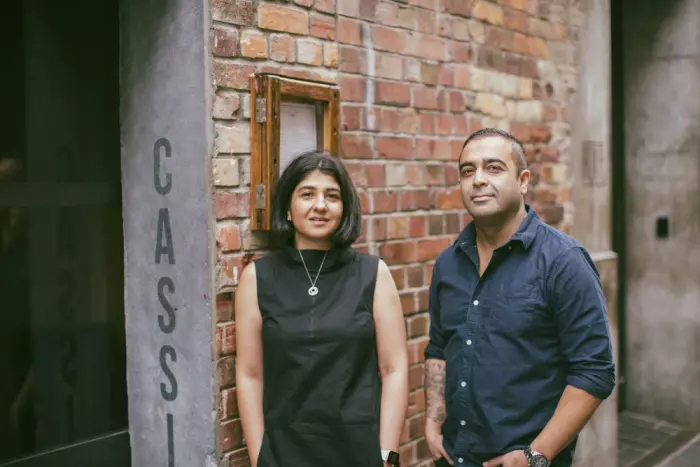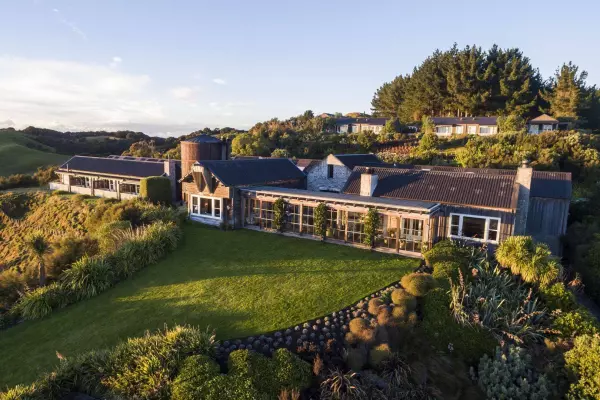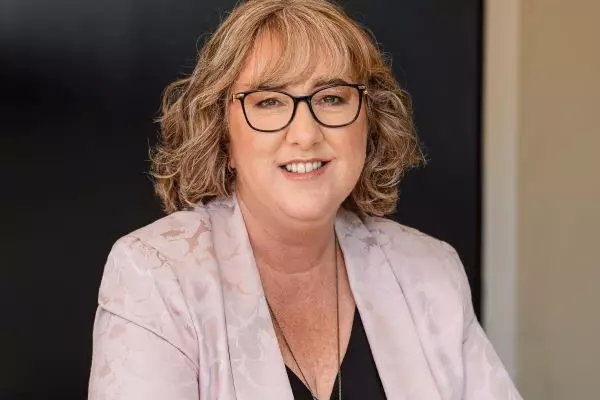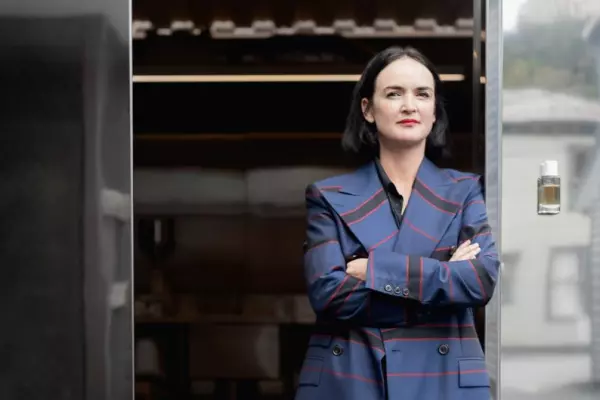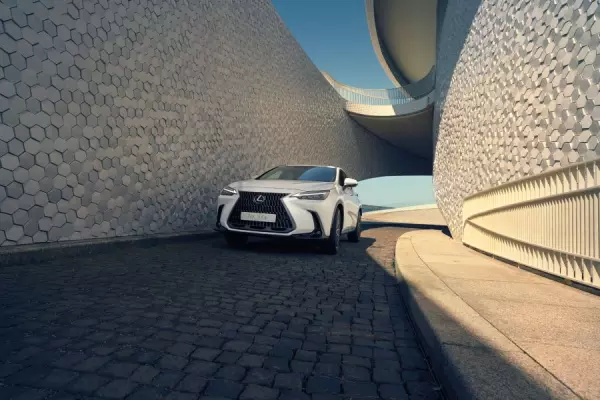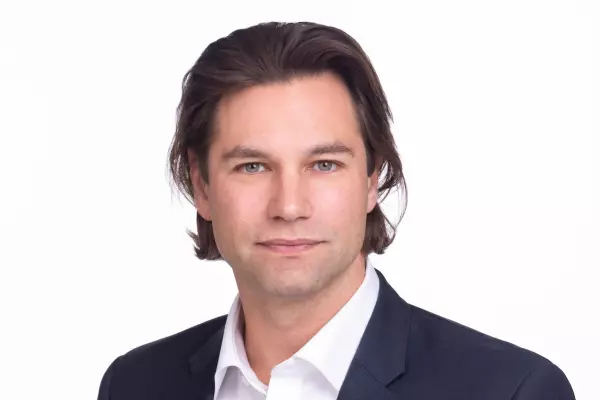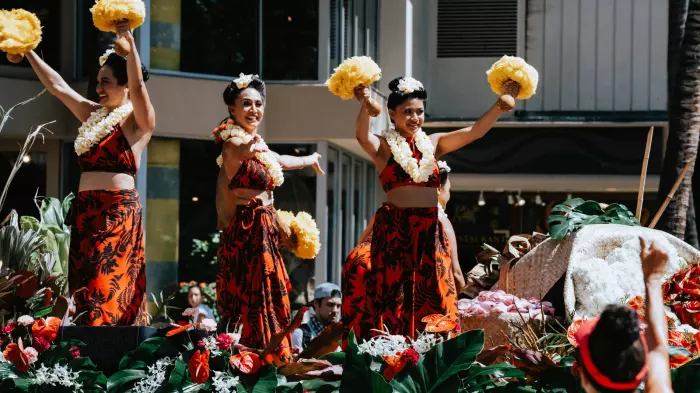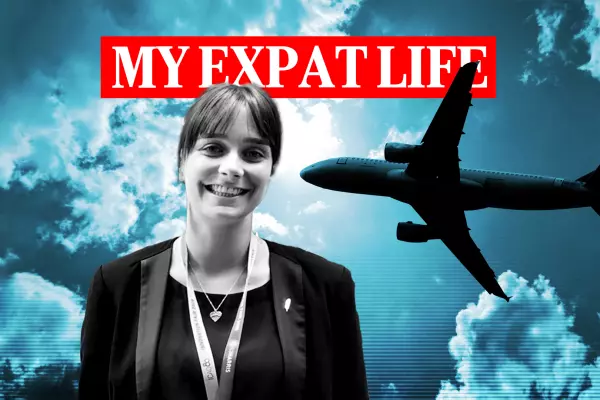Sid and Chand Sahrawat are arguably New Zealand’s most successful restaurateurs. They own three Auckland dining establishments – Sidart, Cassia and Sid at The French Café – and have won numerous honours, including Metro’s Restaurant of the Year supreme award three years running. Here, Sid and Chand sit down to discuss the impact covid has had on their lives, how it has challenged their businesses and why it pushed them to launch a new venture – Cassia at Home.
The past year has been challenging for many businesses, how did it impact you?
Sid: It was good learning not to take things for granted. To realise things can be taken out of your control. No matter what you plan, someone can easily change it.
Chand: It was a real roller coaster. I learnt that I pushed my limits too far – overworking myself, because I went all year, just pushing, pushing. I started a new project with Cassia at Home and then came crashing at the end of December, when I had to say to Sid, “I’m not right.” As a mum, you put kids first, business first, everyone else first, and just forget about yourself. Three days not sleeping, working, coming to a crashing end – it’s probably something you don’t want to do. I blame it on 2020. For all of us, it was a year to learn lessons.
Are you better geared to look after yourself in 2021?
Chand: Yes, I’ve been told off quite well by him [Sid] and told I have to put myself in the equation as well otherwise everyone else will suffer.
Would the diversification of the business into Cassia at Home have happened without the covid lockdowns?
Chand: It was definitely brought on by covid as a way to secure everyone’s livelihoods and there was nothing on the market to meet the demand. Our customers who were buying takeaway meals from us were saying, “Can I also buy the sauce?” It was something we would never have imagined otherwise.
Was a take-home product a mental hurdle to get over?
Sid: Yes, it’s not something you want to do, but if there’s a demand for it, you never know what the next couple of years will bring. It is something quite cool to provide food from the restaurant and not change the recipe. That was the big hurdle to get over; if we have to change the recipe, there’s no point. We didn’t want preservatives or chemicals to alter the taste at all.
Your reputation is all about quality. Did you feel the pressure of Cassia at Home?
Chand: Yes, and it wasn’t all smooth sailing, so when I hit my breakdown, it was related to packaging and production, and we had the restaurants as well. The Cassia at Home products were flying off Farro’s shelves. Because we wanted to control every part of the process, I was hand-labelling jars, hand-packing every box, and couriering out 60 to 70 boxes every other day and it just got too big. Online, we sold out within the first day. We were always on the back foot from day one. So, we want to do it but do it right and make sure we have enough to meet demand and not disappoint people and have a wider network of stockists, which is this year’s game plan. There is so much possibility for the future.
Sid: It wasn’t sustainable.
How have you remodelled this part of the business?
Chand: We’re looking at getting on board a co-packer. But Sid is very firm about the recipe not altering so he’s going to be part of the process – oversee the production – but we have to go at that scale to make it sustainable and meet the demand. We’re looking at getting a logistics partner on board.
Is it an asset being a husband-and-wife team?
Sid: Absolutely, because then we both have a proper vision for the restaurants and the business and we can easily make amendments if something is not going right.
How do you deal with disagreements?
Sid: You give each other reasons – and mostly we do agree. Our core team has been with us for a long time and that makes a big difference in the running of the restaurants.
Chand: If we disagree, we will talk about it and find middle ground. If one of us is wrong, there’s no ego about it. I got it wrong with Cassia at Home demand and Sid got it right and I said, “I’m so sorry, I got it wrong.” But I don’t tell him what to cook, I don’t step into the kitchen or try to do anything in his domain, and he has respect for my expertise in certain areas of the business, and even if he doesn’t like the answer I’m going to give him, he knows why I’m giving it.
How would you describe the culture of your business?
Sid: I think we’ve got a very family-focused culture. We’ve got about 20 people in each restaurant and we feel this camaraderie and everyone looks after each other.
Chand: We have staff meals together every day. No one is made to do something that we wouldn’t do ourselves. All of our employees have our phone numbers to call us if they’re not happy with any decision the manager has made; they can pick up the phone and talk to us. It’s our business, we’re going to deal with it, we’re not going to flog [the issue] off to someone else to resolve it.
Do you think there’s optimism in the hospitality industry at the moment?
Chand: I think it’s heartening to see that despite tourism [falling off] and knowing how much we rely on it, a lot of us have been able to carry on, with the support of locals. It has not been as tragic as everyone expected it to be and that gives us optimism to keep going. Even if the borders are shut for another two years, you feel like you will be fine, you will pull through.
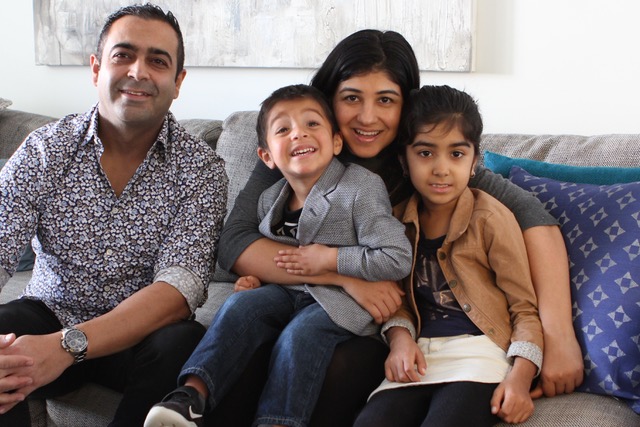 Sid and Chand with their children Roan and Zoya. Photo: Supplied.
Sid and Chand with their children Roan and Zoya. Photo: Supplied.
How do you manage your time with three restaurants, Cassia at Home and two children?
Sid: I think the teams are a big part of it. When we just had Sidart, I was always behind the stoves and I wouldn’t dream of letting go, but once we decided to open Cassia, the time came when I had to let go and my role became more overseeing. Before, I couldn’t let someone else cook, so it was very hard to let that control go. I was on edge for at least six or eight months. Chand really had to motivate me to let go.
Chand: He’s done better that I do, actually. He’s got a better work-life balance. He goes to the gym in the morning, whereas I’m still a little bit dictated by the kids and it’s hard to get that balance right. And kids are only kids for so long, so I have to figure out the mum-guilt part of it as well.
Sid: I’ve been a chef for 25 years so I can sense when things are in control or not. And cooking is one thing, running a restaurant is altogether different. If the team spirit is high, everything is fine, and that’s my role now. I have enough people to run the kitchen, so I make sure it’s what we want the business to be and what we know it is, so even if it’s 20% off, we can gauge it quickly.
What has been the biggest triumph in the business?
Sid: I would say the quality of the dining experience is the biggest triumph for me. It’s very close to what we want it to be. Also, that our staff are happy to take on constructive refinement. Even at Sidart after 11 years, I can still go in there today and say, “I’m not happy” with this or that. Constant evolution is what keeps restaurants successful.
Chand: I think for me, getting the Cuisine Restaurant of the Year award for Sidart. We changed a 10-year-old concept, redid it to something bold and new and unheard of in this country, and to get that recognition, for me that was a big triumph.
And the biggest challenge or failure?
Sid: The French Café has been a learning curve. It was like buying a furnished house and making it your own. We’ve just had our third Christmas and I think finally now the diners have accepted it and they know what they’re coming for. The style is very different from the old French Café. People are enjoying that more relaxed environment but with emphasis on the quality and experience, and just a bit friendlier. The first day we took over, it was me and a couple of others and the staff we inherited. We had 75 people booked and I had no idea how the service worked because I couldn’t enter the premises before that day, so the restaurant manager was trying to tell me the system while we’re changing 60% of the menu and me trying to get to grips with the concept that Simon [Wright, the former chef/co-owner] had had. It was a car crash, but that’s life.
Chand: For me, buying The French Café was a hard challenge, which probably drained 80% of my energy by the end of it. It’s still a work in progress, I would say. We had plans to refurbish it last year, but we had to pull back and say, “This is not the year to invest.” We’ll hold on and get a clearer picture.
What are your ambitions for this year?
Chand: I think to see through Cassia at Home and set it up properly and secure it for the future. It’s something I’m happy, grateful and proud of, but I want to do it in a sustainable way and to do it with not putting too much pressure on Sid and the team. And getting a better work-life balance.
Sid: If the restaurants can stay steady and we can sustain our staff. The visa restrictions are a bit of a nightmare and I don’t want to see some of our key people having to go home. We need it [immigration] to be slightly more lenient or in favour of immigrants, because they have nothing to go back for as well. If anything, it should be more for the people. We want to keep creating and inspiring ourselves and the diners and having fun with it.


